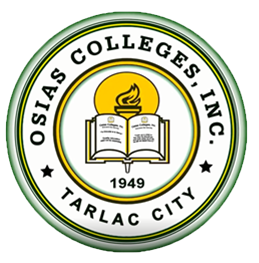Bachelor of Science
in
Internal Auditing (BSIA)

Degree Name
The degree program described herein shall be called Bachelor of Science in Internal Auditing (BSIA)
Nature of the Field of Study
This is the program that provides accounting education to students wanting to pursue a professional career in Internal Auditing. Further, this is the program that complies with the latest competency framework for professional accountants issued by the International Federation of Accountants (IFAC) thru their International Education Standards and the global internal auditing standards. Thus, this qualities the graduate of this program to take assessments leading to certifications in Internal Auditing given by global professional Internal Auditing organizations.
Degree / Program Goal
The primary goal of internal auditing education is to produce competent and ethical professional internal auditors who develop an attitude of lifelong learning, to remain their competence as certified internal auditors.
The BSIA program should provide a foundation of professional knowledge, professional skills, and professional values, ethics and attitudes that enable them to continue to learn and adapt to change throughout their professional lives. These capabilities will enable professional internal auditors to identify problems, know where to find this knowledge and know how to apply it in an ethical manner to achieve appropriate solutions. The balance of these elements may vary but what is required is to develop the knowledge base, strong skills and ethical values in order to produce competent professional internal auditors with appropriate values, ethics, and attitudes.
The primary goal of internal auditing education is to produce competent and ethical professional internal auditors who develop an attitude of lifelong learning, to remain their competence as certified internal auditors.
The BSIA program should provide a foundation of professional knowledge, professional skills, and professional values, ethics and attitudes that enable them to continue to learn and adapt to change throughout their professional lives. These capabilities will enable professional internal auditors to identify problems, know where to find this knowledge and know how to apply it in an ethical manner to achieve appropriate solutions. The balance of these elements may vary but what is required is to develop the knowledge base, strong skills and ethical values in order to produce competent professional internal auditors with appropriate values, ethics, and attitudes.
Specific Professions/Careers/Occupations for graduates
- External Service Provider: Junior Internal Audit Staff, Associate Consultant.
- Commerce and Industry: Internal Auditing Staff, Compliance Officer, Tax Auditor, Financial Auditor, Budget Analyst, Credit Analyst
- Government: State Accounting Examiner, NBI Agent, Treasury Agent, Revenue Officer, Bank Examiner, Budget Officer, Financial Services Specialist.
- Education: Junior Instructor
- External Service Provider: Senior Internal Audit Manager, Managing Consultant, Lead Consultant
- Commerce and Industry: Senior Internal Auditor, Senior Information Systems Auditor, Senior Compliance Officer, Senior Budget Officer.
- Government: State Auditor V, Director III and Director IV, Government Accountancy and Audit, Audit Services Manager, Senior Auditor
- Education: Senior Faculty, Program Head
- External Service Provider: Principal, Partner of Advisory Services
- Commerce and Industry: Chief Audit Executive, Chief Risk Officer, Chief Compliance Officer
- Government: National Treasurer, Vice President for Finance/CFO (for GOCCs), Commissioner, Associate Commissioner, Assistant Commissioner, (COA, BIR, BOC)
- Education: Vice President for Academic Affairs, Dean
